- Home
- Nora Roberts
The Collector Page 3
The Collector Read online
Page 3
show them her view. When Fitzhugh stepped out, she made coffee, gave Thomas an early breakfast as she talked to Morelli.
She learned he’d been married a year and a half, and his wife was expecting their first child in January. He liked cats, but was more a dog person, came from a big Italian-American family. His brother owned a pizzeria in Little Italy, and he played basketball in his downtime.
“You’d make a good cop,” he told her.
“I would?”
“You get information. I’m halfway to telling you my life story.”
“I ask questions—I can’t help myself. People interest me. Which is why I was looking out the window. God, she must have family, parents, siblings, someone who loves her. She was just gorgeous, and tall—maybe a model.”
“Tall?”
“Oh, the window, where she stood in it.” Lila held her hands out, palms facing to indicate height. “She had to be about five-nine or -ten.”
“Yeah, a pretty good cop. I’ll get that,” he told her when the buzzer sounded again.
Moments later he walked back in with a weary-looking man of about forty and a sharp-looking woman a decade younger. “Detectives Waterstone and Fine. They’re going to talk to you now. You take care, Ms. Emerson.”
“Oh, you’re leaving? Thanks for . . . well, thanks. Maybe I’ll grab a slice in your brother’s restaurant.”
“You do that. Detectives.”
When he left her alone with them the nerves he’d calmed sprang back.
“I have coffee.”
“Wouldn’t mind that,” Fine said. She crouched down to pet the cat. “Pretty cat.”
“Yeah. Um, how do you take the coffee?”
“Black’s fine for both of us. You’re staying here while the Kilderbrands are in France?”
“That’s right.” Better, Lila thought, with her hands busy. “I’m a house-sitter.”
“You stay in other people’s houses for a living?” Waterstone asked.
“Not so much for a living—it’s more an adventure. I write for a living. Enough of a living.”
“How long have you been staying here?” Waterstone asked.
“A week. Sorry, a week and two days now since it’s today. I’m here three weeks altogether while they’re visiting friends and family in France.”
“Have you stayed here before?”
“No, first-time clients.”
“And your address?”
“I don’t have one, really. I bunk with a friend if I’m not working, but that’s rare. I stay busy.”
“You don’t have a place of your own?” Fine qualified.
“No. Low overhead. But I use my friend Julie Bryant’s address for official things, for mail.” She gave them another address in Chelsea. “I stay there sometimes, between jobs.”
“Huh. Why don’t you show us where you were when you witnessed the incident?”
“This way. I was getting ready for bed, but a little wired up. I should tell you I had a friend over—Julie, actually—and we had some wine. A lot of wine, to be honest about it, and I was wired up some, so I picked up my binoculars and looked out to see the window show.”
“Binoculars,” Waterstone repeated.
“These.” She stepped over to the bedroom window, picked them up. “I take them with me everywhere. I stay in different neighborhoods in New York and, well, everywhere. I travel. Just got back from a job in Rome.”
“Somebody in Rome hired you to watch their house?”
“Flat in this case,” she told Fine. “Yeah. It’s a lot of word of mouth, client recommendation, and I have a blog. I like to watch people, think up stories about them. It’s spying,” she said flatly. “I don’t think of it that way, honestly don’t mean it that way, but it’s spying. It’s just . . . all those windows are like little worlds.”
Waterstone took the glasses, held them up as he studied the building. “You’ve got a pretty good eye line.”
“They fought a lot, or had intense conversations, made up a lot.”
“Who?” Fine asked.
“Blondie and Mr. Slick. I named them that. It was her place because, well, it had a female vibe to it, but he stayed there every night—since I’ve been here anyway.”
“Can you describe him?”
She nodded at Waterstone. “A little taller than her—maybe six-one? Solid build—buff, so probably about one-ninety—brown hair, wavy. Dimples that popped out when he smiled. Late twenties, maybe. Very attractive.”
“What exactly did you see tonight?”
“I could see her—great little black dress, her hair falling out of an updo. She was crying. It looked like she was crying, and wiping at the tears, and talking fast. Pleading. That’s how it looked to me. Then I saw him hit her.”
“You saw the man who hit her?”
“No. I saw someone hit her. He was to the left of the window. All I saw was the hit—kind of a flash. A dark sleeve. And the way her head snapped back. She tried to cover her face, and he hit her again. I grabbed my phone. It was right on the nightstand, with the charger. I was going to call the police, and I looked out again, and she was against the window—her back against the window. It blocked out everything else. Then the glass broke, and she fell. She fell, so fast. I didn’t see anything but her for a minute. I called the police, and when I looked back up at the window, the light was off. I couldn’t see anything.”
“You never saw her assailant?”
“No. Just her. I just saw her. But someone over there, in the building, someone must know him. Or some of her friends, her family. Someone must know him. He pushed her. Or maybe he didn’t mean to, but hit her again so hard it broke the glass and she fell. It doesn’t matter. He killed her, and someone knows him.”
“What time did you first see her tonight?” Waterstone set the binoculars aside.
“It was right around one-forty. I looked at the time when I went to the window, thinking it was so late to be up, so I know it was one-forty, only a minute or so after when I saw her.”
“After you called nine-one-one,” Fine began, “did you see anyone leave the building?”
“No, but I wasn’t looking. When she fell, I just froze for a minute.”
“Your nine-one-one call came in at one-forty-four,” Fine told her. “How long after you saw her was she struck?”
“It had to be under a minute. I saw the couple two floors up come in—dressed up like for a fancy dinner party, and the . . .” Don’t say sexy naked gay guy. “The man on the twelfth floor had a friend over, then I saw her, so it was probably about one-forty-two or -three anyway when I saw her. If my watch is on the mark.”
Fine took out her phone, swiped, held it out. “Do you recognize this man?”
Lila studied the driver’s license photo. “That’s him! That’s the boyfriend. I’m sure of it. Ninety-nine percent—no, ninety-six percent—sure. You’ve already caught him. I’ll testify.”
Sympathetic tears stung her eyes. “Whatever you need. He had no right to hurt her that way. I’ll do whatever you need me to do.”
“We appreciate that, Ms. Emerson, but we won’t need you to testify against this individual.”
“But he . . . Did he confess?”
“Not exactly.” Fine put her phone away. “He’s on his way to the morgue.”
“I don’t understand.”
“It appears the man you’ve seen with the victim pushed her out the window then sat down on the couch, put the barrel of a .32 in his mouth and pulled the trigger.”
“Oh. Oh God.” Staggering back, Lila dropped to the foot of the bed. “Oh God. He killed her, then himself.”
“It appears.”
“Why? Why would he do that?”
“That’s a question,” Fine said. “Let’s go over this again.”
By the time the police left, she’d been up for nearly twenty-four hours. She wanted to call Julie but stopped herself. Why start her best friend’s day off so horribly?
She co
nsidered calling her mother—always a rock in a crisis—then ran through how it would go.
After being supportive, sympathetic, there would come:
Why do you live in New York, Lila-Lou? It’s so dangerous. Come live with me and your father (the Lieutenant Colonel, retired) in Juneau. As in Alaska.
“I don’t want to talk about it again anyway. Just can’t say it all over again right now.”
Instead she flopped down on the bed, still in her clothes, cuddled Thomas when he joined her.
And to her surprise, dropped into sleep in seconds.
She woke with her heart pounding, her hands clutching at the bed as the sensation of falling rocked her.
Reaction, she told herself. Just a projection reaction. She rolled herself up, saw she’d slept until noon.
Enough. She needed a shower, a change of clothes and to get the hell out. She’d done everything she could do, told the police everything she’d seen. Mr. Slick killed Blondie and himself, ripping away two lives, and nothing could change it, especially obsessing over it.
Instead, obsessing, she grabbed her iPad, went on a search for any stories about the murder.
“Runway model falls to her death,” she read. “I knew it. She was built for it.”
Grabbing the last cupcake—knowing better but grabbing it anyway—she ate while reading the sketchy story about the two deaths. Sage Kendall. She even had a model’s name, Lila thought. “And Oliver Archer. Mr. Slick had a name, too. She was only twenty-four, Thomas. Four years younger than me. She did some commercials. I wonder if I’ve seen her. And why does that make it worse somehow?”
No, she had to stop, do what she’d just told herself to do. Clean herself up and get out for a while.
The shower helped, as did pulling on a light summer dress and sandals. Makeup helped more, she admitted, as she was still pale and hollow-eyed.
She’d walk out of the neighborhood—away from her own thoughts, maybe find somewhere for a quick, decent lunch. Then she could call Julie, maybe ask her to come over again so she could just dump all this out on a sympathetic, nonjudgmental ear.
“I’ll be back in a couple hours, Thomas.”
She started out, walked back, picked up the card Detective Fine had given her. She couldn’t reasonably stop obsessing until she’d finished obsessing, she told herself. And there was nothing wrong with an eyewitness to the murder portion of a murder/suicide asking the investigating detective if they’d closed the case.
In any case, it would be a short, pleasant walk. Maybe she’d use the pool when she got back. She wasn’t technically supposed to have use of the complex’s pool or gym as a non-resident, but the most considerate Macey had wheedled around that block.
She could swim off the dregs of fatigue, stress, upset, then end the day with a whine session to her best friend.
Tomorrow, she’d go back to work. Life had to go on. Death reminded everyone life had to go on.
Ash emptied the contents of the bag. “Effects,” they called them, he thought. Personal effects. The watch, the ring, the wallet—with too much cash, the card case with too many credit cards. The silver key ring from Tiffany’s. The watch, the ring, had likely come from there—or Cartier’s, or somewhere Oliver had deemed important enough. The slim silver lighter, too.
All the shiny pocket debris his brother had gathered up on the last day of his life.
Oliver, always on the edge of the next big thing, the next big score, the next big anything. Charming, careless Oliver.
Dead.
“He had an iPhone, we’re still processing it.”
“What?” He looked up at the detective—Fine, he remembered. Detective Fine, with the soft blue eyes full of secrets. “I’m sorry, what?”
“We’re still processing his phone, and when we’ve cleared the apartment, we’ll need you to go through with us, identify his possessions. As I said, his license lists an address in the West Village, but our information is he moved out three months ago.”
“Yeah, you said. I don’t know.”
“You hadn’t seen him for . . . ?”
He’d told her, told her and her hard-faced partner all of it when they’d come to his loft. Notification, that’s what they called it. Personal effects, notification. The stuff of novels and series television. Not his life.
“A couple of months. Three or four months, I guess.”
“But you spoke with him a few days ago.”
“He called, talked about meeting for a drink, catching up. I was busy, I put him off, told him we’d make it next week. Jesus.” Ash pressed his fingers to his eyes.
“I know this is hard. You said you hadn’t met the woman he’d been living with for the past three months, almost four months now.”
“No. He mentioned her when he called. Bragging some—hot model. I didn’t pay much attention. Oliver brags, it’s his default.”
“He didn’t mention any trouble between him and the hot model?”
“Just the opposite. She was great, they were great, everything was great.” He looked down at his hands, noticed a smudge of cerulean blue on the side of his thumb.
He’d been painting when they’d come to his loft. He’d been annoyed by the interruption—then the world changed.
It all changed with a few words.
“Mr. Archer?”
“Yeah. Yeah. Everything was fucking great. That’s how Oliver works. Everything’s great unless it’s . . .”
“Unless?”
Ash dragged his hands through his mop of black hair. “Look, he’s family, and now he’s dead, and I’m trying to get my head around that. I’m not going to punch at him.”
“It’s not punching at him, Mr. Archer. The better picture I have of him, the better I can resolve what happened.”
Maybe that was true, maybe it was. Who was he to judge?
“Okay, Oliver ran hot. Hot deals, hot women, hot clubs. He liked to party.”
“Live large.”
“Yeah, you could say. He liked to consider himself a player, but God, he wasn’t. Always the high-stakes table for Oliver, and if he won—gambling, a business deal, a woman—he’d lose it and more in the next round. So everything was great, until it wasn’t and he needed somebody to pull him out. He’s charming and clever and . . . was.”
The single word slashed through him. Oliver would never be charming and clever again.
“He’s his mother’s youngest, her only son, and basically? He was overindulged.”
“You said he wasn’t violent.”
“No.” Ash pulled himself back from the grief—that was for later—but he let the quick flash of temper come through. “I didn’t say Oliver wasn’t violent, I said he was the opposite of violent.” It stuck in his gut like a knife, the accusation that his brother had killed. “He’d talk himself out of a bad situation, or run from it. If he couldn’t talk himself out of it—and that was rare—or run from it, he’d hide from it.”
“Yet we have a witness claiming he struck his girlfriend multiple times before shoving her out a fourteenth-story window.”
“The witness is wrong,” Ash said flatly. “Oliver’s more full of bullshit and delusions of grandeur than anyone I know, but he’d never hit a woman. And he sure as hell wouldn’t kill one. Over and above? He’d never kill himself.”
“There was a lot of alcohol and drugs in the apartment. Oxy, coke, marijuana, Vicodin.”

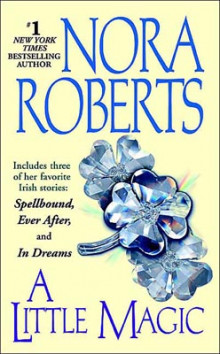 A Little Magic
A Little Magic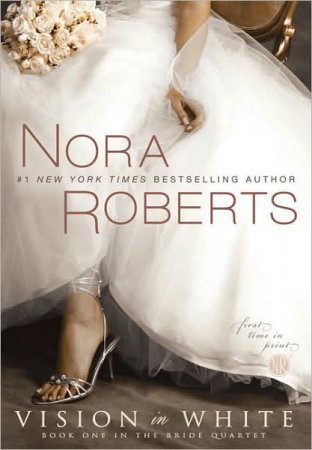 Vision in White
Vision in White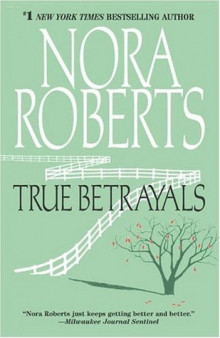 True Betrayals
True Betrayals The Next Always
The Next Always A Man for Amanda
A Man for Amanda Born in Fire
Born in Fire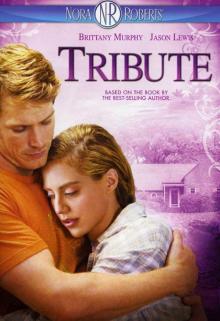 Tribute
Tribute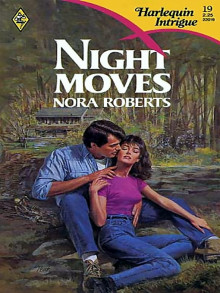 Night Moves
Night Moves Dance Upon the Air
Dance Upon the Air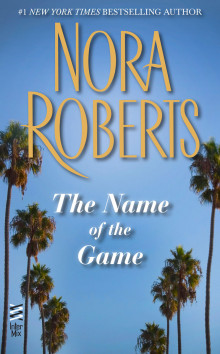 The Name of the Game
The Name of the Game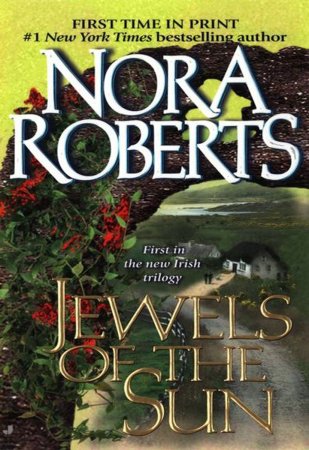 Jewels of the Sun
Jewels of the Sun River's End
River's End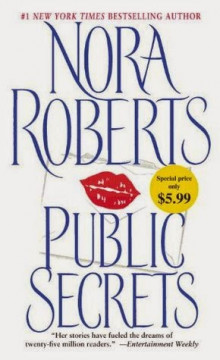 Public Secrets
Public Secrets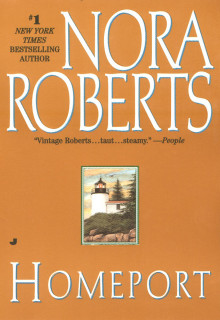 Homeport
Homeport Private Scandals
Private Scandals The Witness
The Witness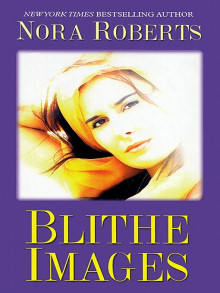 Blithe Images
Blithe Images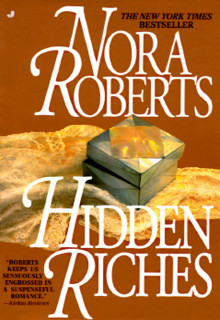 Hidden Riches
Hidden Riches Key of Light
Key of Light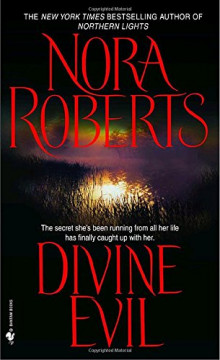 Divine Evil
Divine Evil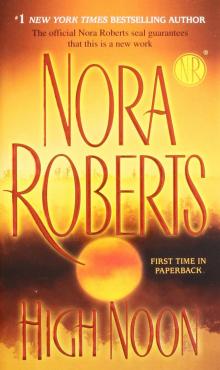 High Noon
High Noon Blue Dahlia
Blue Dahlia Sea Swept
Sea Swept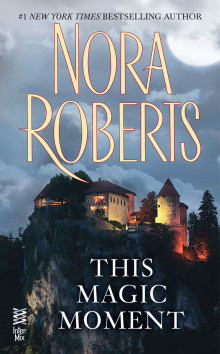 This Magic Moment
This Magic Moment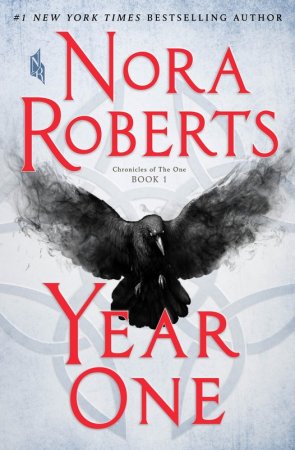 Year One
Year One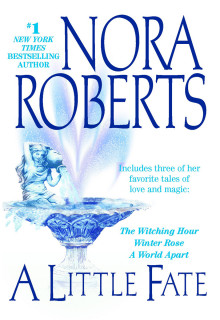 A Little Fate
A Little Fate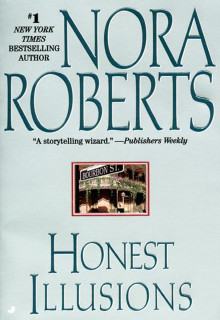 Honest Illusions
Honest Illusions The Reef
The Reef Shelter in Place
Shelter in Place The Hollow
The Hollow Holding the Dream
Holding the Dream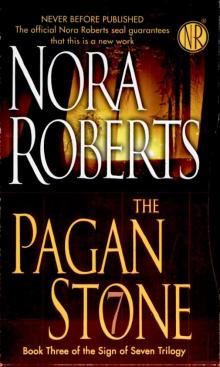 The Pagan Stone
The Pagan Stone Savour the Moment
Savour the Moment The Perfect Hope
The Perfect Hope Island of Glass
Island of Glass Happy Ever After
Happy Ever After Bed of Roses
Bed of Roses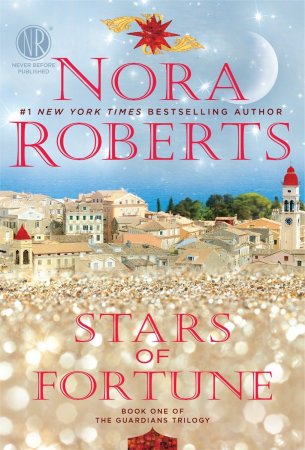 Stars of Fortune
Stars of Fortune Dark Witch
Dark Witch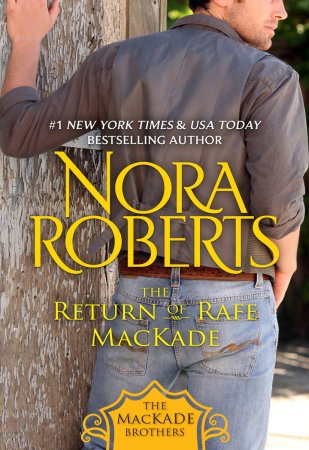 The Return of Rafe MacKade
The Return of Rafe MacKade Chesapeake Blue
Chesapeake Blue The Perfect Neighbor
The Perfect Neighbor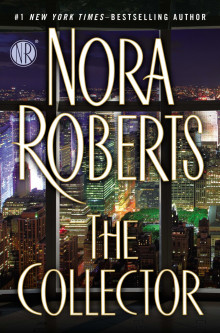 The Collector
The Collector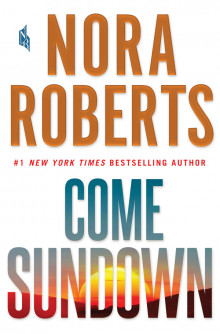 Come Sundown
Come Sundown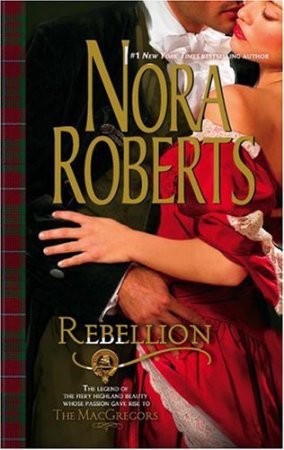 Rebellion
Rebellion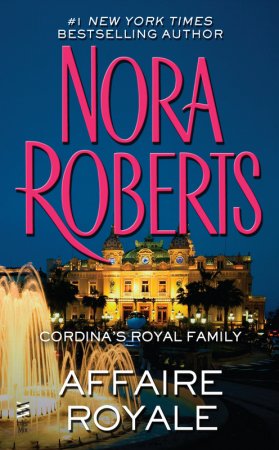 Affaire Royale
Affaire Royale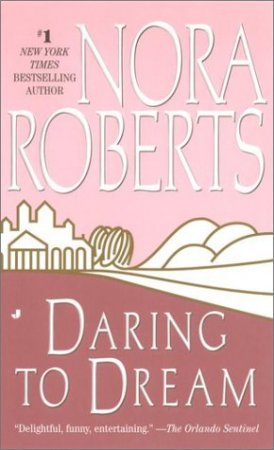 Daring to Dream
Daring to Dream Bay of Sighs
Bay of Sighs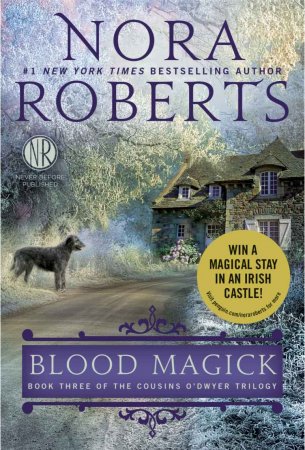 Blood Magick
Blood Magick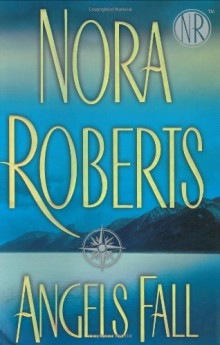 Angels Fall
Angels Fall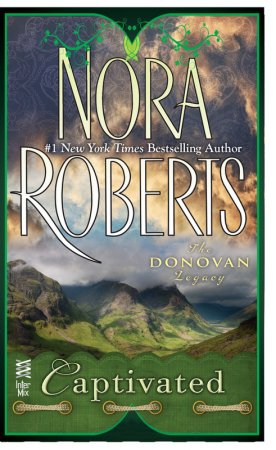 Captivated
Captivated The Last Boyfriend
The Last Boyfriend Irish Thoroughbred
Irish Thoroughbred Inner Harbor
Inner Harbor The Right Path
The Right Path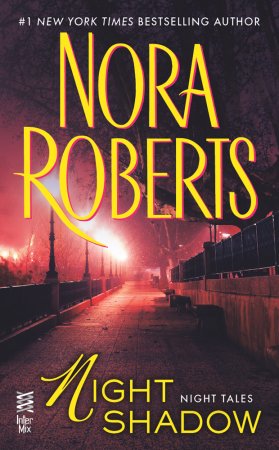 Night Shadow
Night Shadow The Heart of Devin MacKade
The Heart of Devin MacKade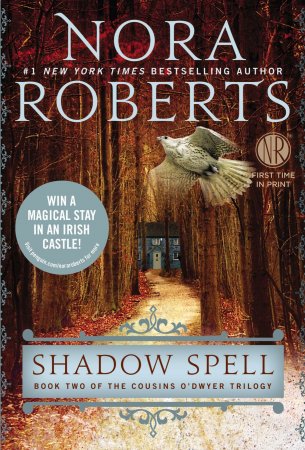 Shadow Spell
Shadow Spell The Playboy Prince
The Playboy Prince The Fall of Shane MacKade
The Fall of Shane MacKade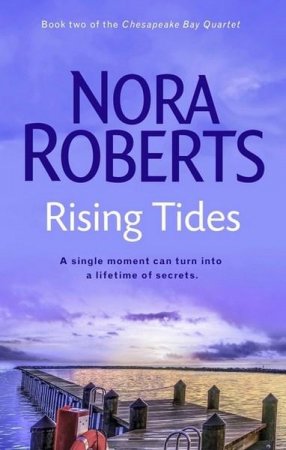 Rising Tides
Rising Tides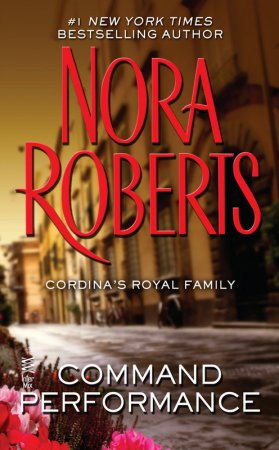 Command Performance
Command Performance Hidden Star
Hidden Star Cordina's Crown Jewel
Cordina's Crown Jewel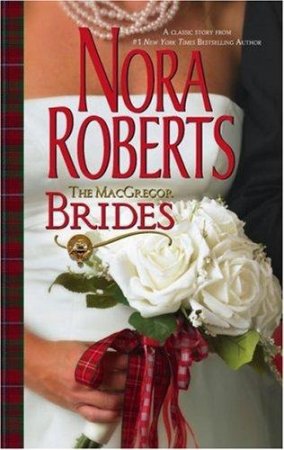 The MacGregor Brides
The MacGregor Brides The Pride of Jared MacKade
The Pride of Jared MacKade Born in Ice
Born in Ice Whiskey Beach
Whiskey Beach The Last Honest Woman
The Last Honest Woman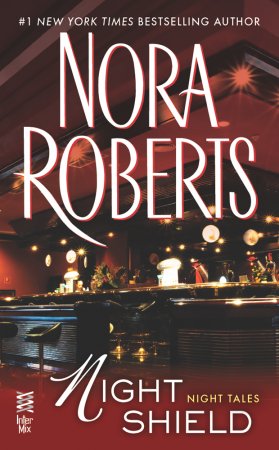 Night Shield
Night Shield Born in Shame
Born in Shame Secret Star
Secret Star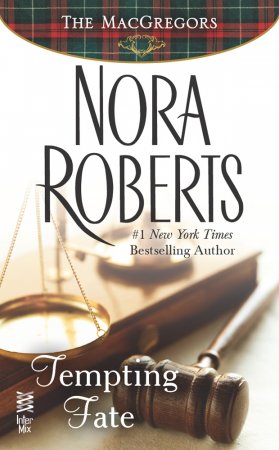 Tempting Fate
Tempting Fate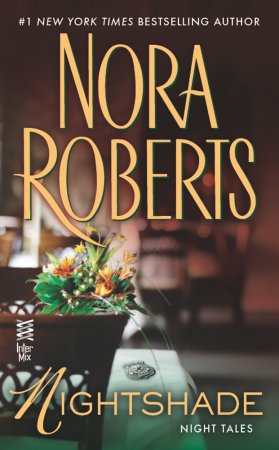 Nightshade
Nightshade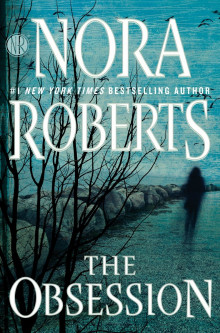 The Obsession
The Obsession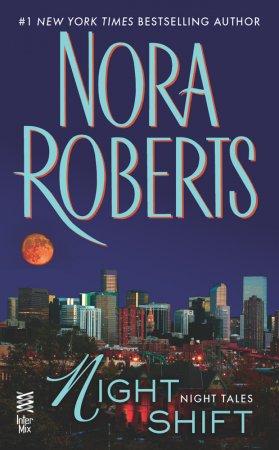 Night Shift
Night Shift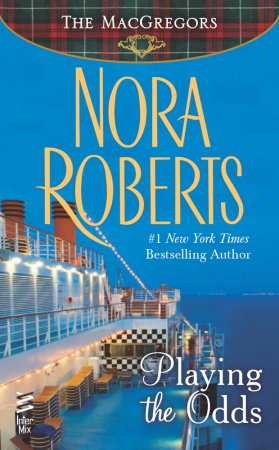 Playing The Odds
Playing The Odds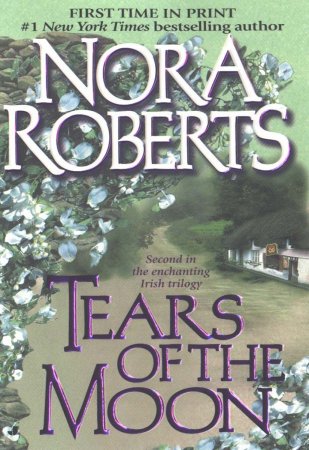 Tears of the Moon
Tears of the Moon One Man's Art
One Man's Art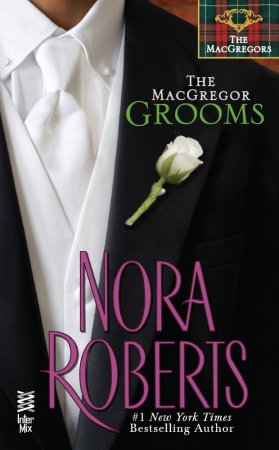 The MacGregor Groom
The MacGregor Groom Irish Rebel
Irish Rebel Morrigan's Cross
Morrigan's Cross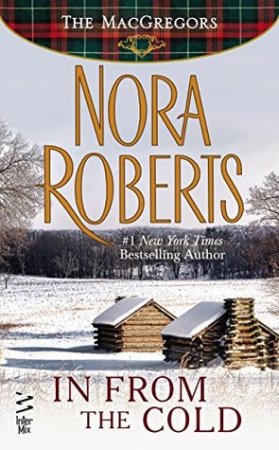 In From The Cold
In From The Cold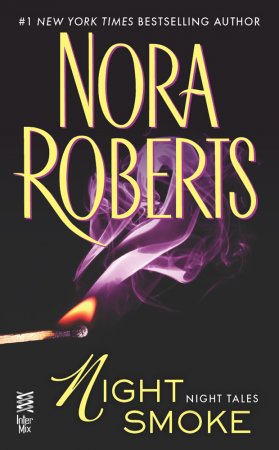 Night Smoke
Night Smoke Finding the Dream
Finding the Dream Red Lily
Red Lily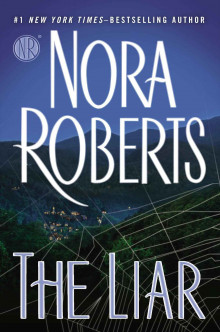 The Liar
The Liar Montana Sky
Montana Sky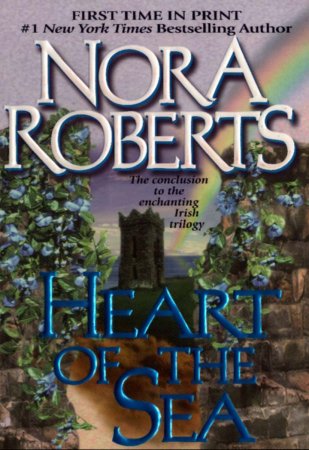 Heart of the Sea
Heart of the Sea All The Possibilities
All The Possibilities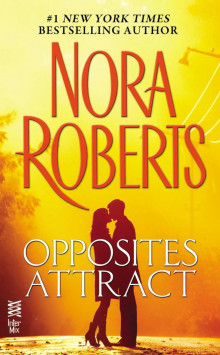 Opposites Attract
Opposites Attract Captive Star
Captive Star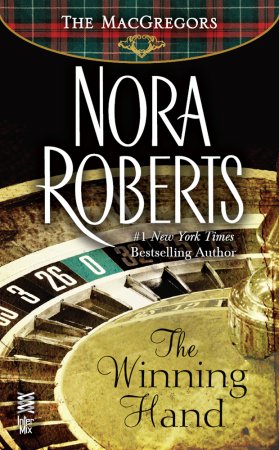 The Winning Hand
The Winning Hand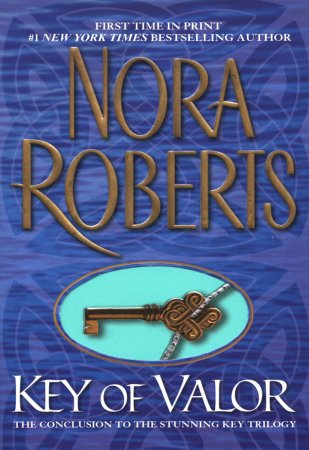 Key of Valor
Key of Valor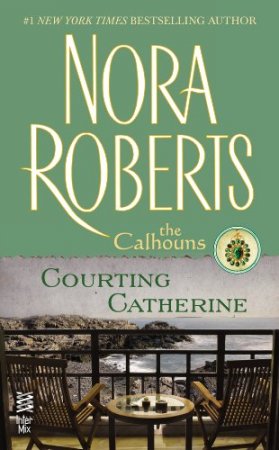 Courting Catherine
Courting Catherine Heaven and Earth
Heaven and Earth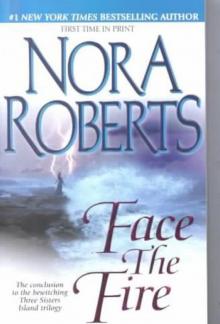 Face the Fire
Face the Fire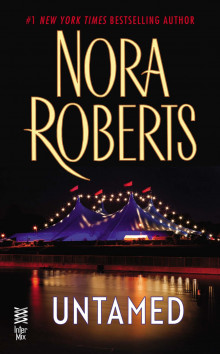 Untamed
Untamed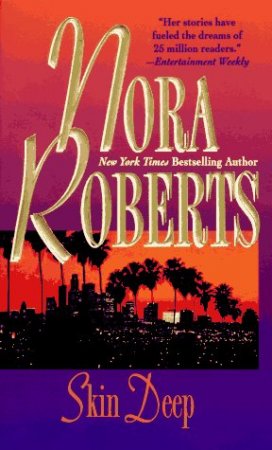 Skin Deep
Skin Deep Enchanted
Enchanted Song of the West
Song of the West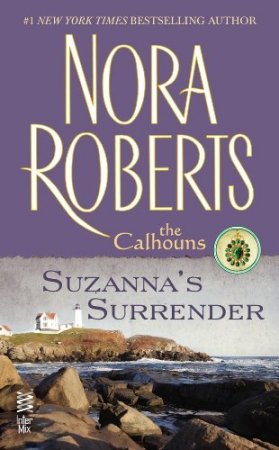 Suzanna's Surrender
Suzanna's Surrender Entranced
Entranced Dance of the Gods
Dance of the Gods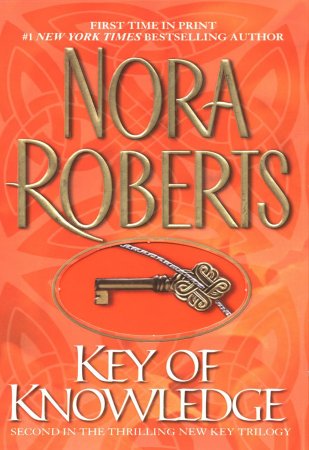 Key of Knowledge
Key of Knowledge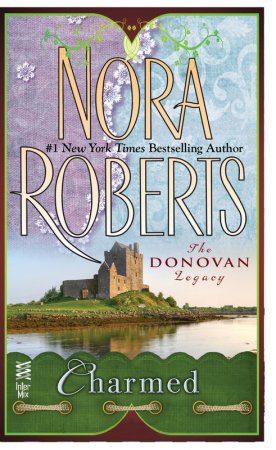 Charmed
Charmed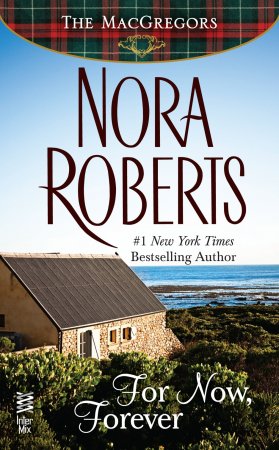 For Now, Forever
For Now, Forever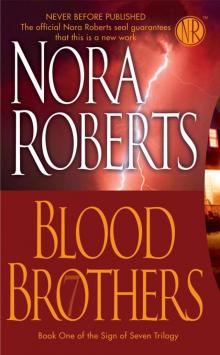 Blood Brothers
Blood Brothers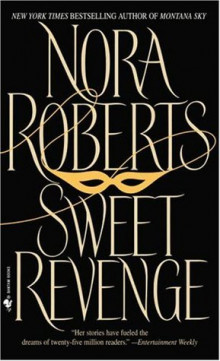 Sweet Revenge
Sweet Revenge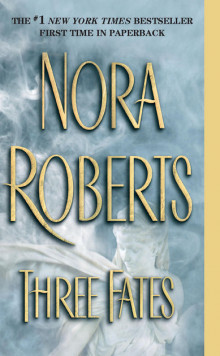 Three Fates
Three Fates Mind Over Matter
Mind Over Matter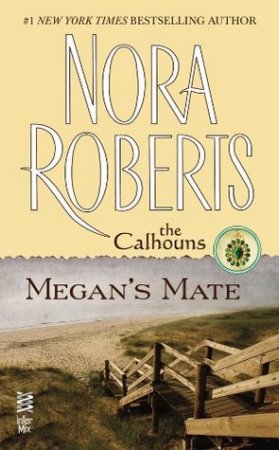 Megan's Mate
Megan's Mate Valley of Silence
Valley of Silence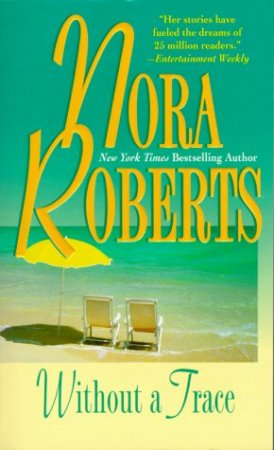 Without A Trace
Without A Trace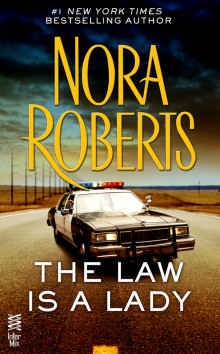 The Law is a Lady
The Law is a Lady Temptation
Temptation Dance to the Piper
Dance to the Piper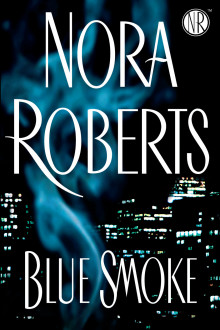 Blue Smoke
Blue Smoke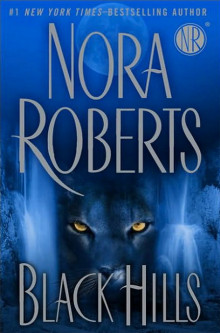 Black Hills
Black Hills The Heart's Victory
The Heart's Victory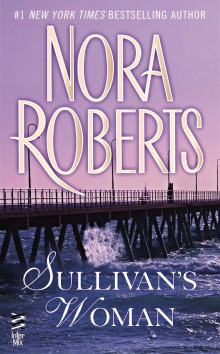 Sullivan's Woman
Sullivan's Woman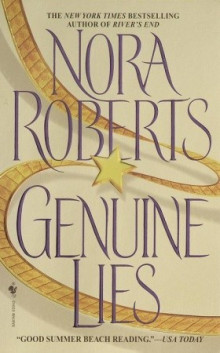 Genuine Lies
Genuine Lies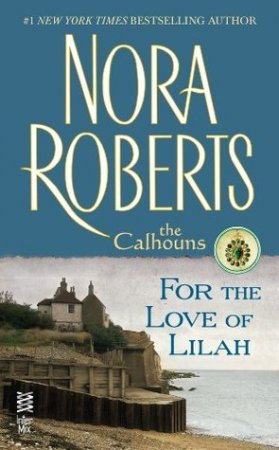 For the Love of Lilah
For the Love of Lilah Gabriel's Angel
Gabriel's Angel Irish Rose
Irish Rose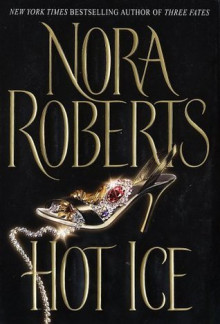 Hot Ice
Hot Ice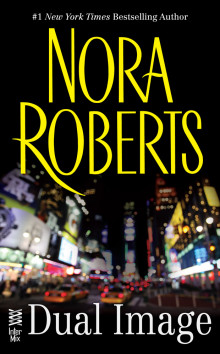 Dual Image
Dual Image Lawless
Lawless Catch My Heart
Catch My Heart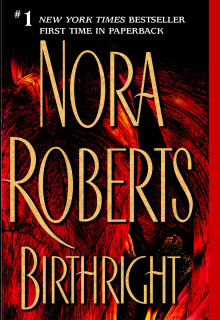 Birthright
Birthright First Impressions
First Impressions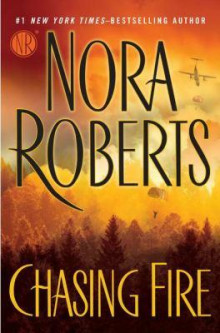 Chasing Fire
Chasing Fire Carnal Innocence
Carnal Innocence Best Laid Plans
Best Laid Plans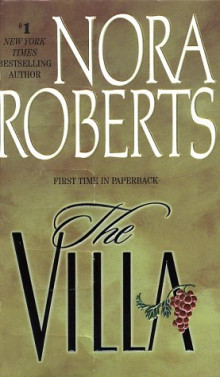 The Villa
The Villa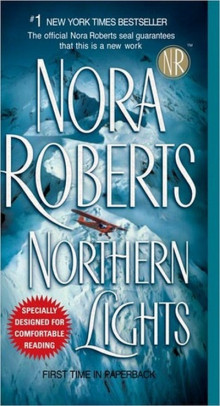 Northern Lights
Northern Lights Local Hero
Local Hero Island of Flowers
Island of Flowers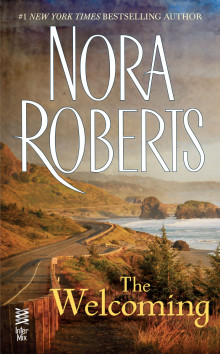 The Welcoming
The Welcoming All I Want for Christmas
All I Want for Christmas Black Rose
Black Rose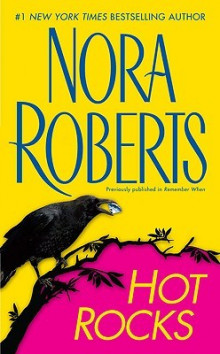 Hot Rocks
Hot Rocks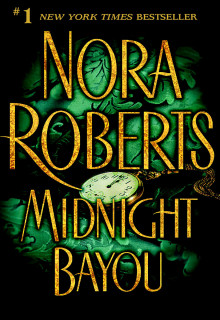 Midnight Bayou
Midnight Bayou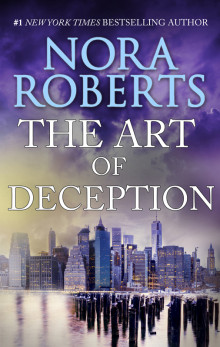 The Art of Deception
The Art of Deception From This Day
From This Day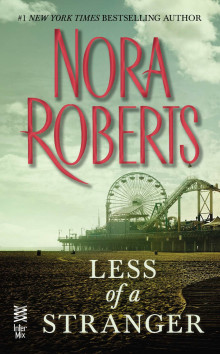 Less of a Stranger
Less of a Stranger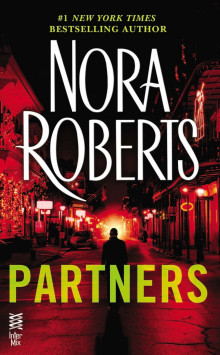 Partners
Partners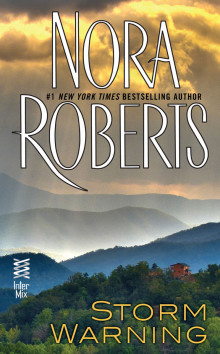 Storm Warning
Storm Warning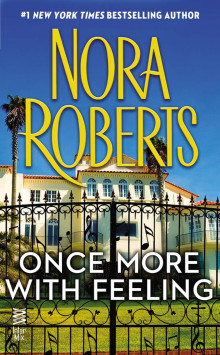 Once More With Feeling
Once More With Feeling Her Mother's Keeper
Her Mother's Keeper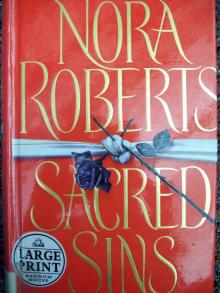 Sacred Sins
Sacred Sins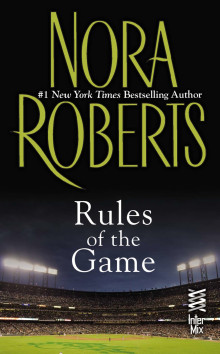 Rules of the Game
Rules of the Game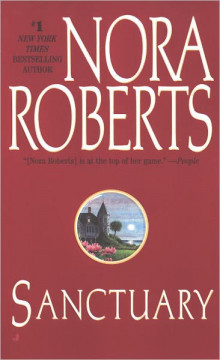 Sanctuary
Sanctuary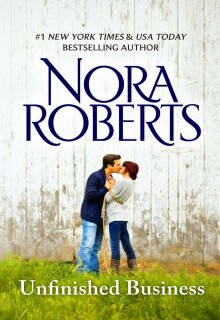 Unfinished Business
Unfinished Business Cordina's Royal Family Collection
Cordina's Royal Family Collection Dangerous Embrace
Dangerous Embrace One Summer
One Summer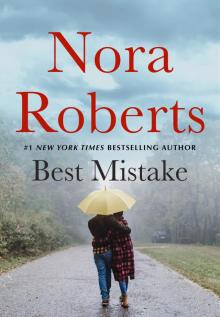 The Best Mistake
The Best Mistake Boundary Lines
Boundary Lines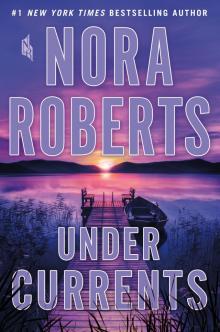 Under Currents
Under Currents The Stanislaski Series Collection, Volume 1
The Stanislaski Series Collection, Volume 1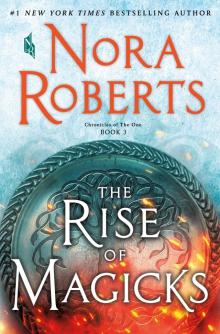 The Rise of Magicks
The Rise of Magicks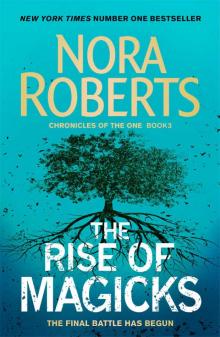 The Rise of Magicks (Chronicles of The One)
The Rise of Magicks (Chronicles of The One) The Awakening: The Dragon Heart Legacy Book 1
The Awakening: The Dragon Heart Legacy Book 1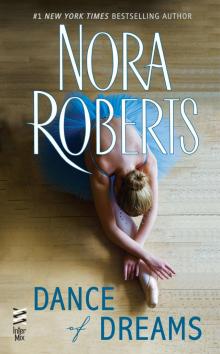 Dance of Dreams
Dance of Dreams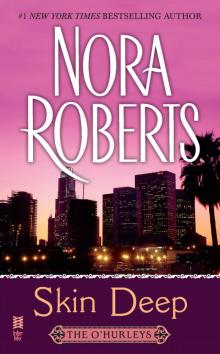 Skin Deep: The O'Hurleys
Skin Deep: The O'Hurleys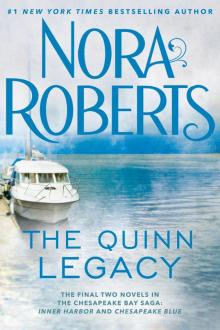 The Quinn Legacy: Inner Harbor ; Chesapeake Blue
The Quinn Legacy: Inner Harbor ; Chesapeake Blue![[Chronicles of the One 03.0] The Rise of Magicks Read online](http://i1.bookreadfree.com/11/chronicles_of_the_one_03_0_the_rise_of_magicks_preview.jpg) [Chronicles of the One 03.0] The Rise of Magicks
[Chronicles of the One 03.0] The Rise of Magicks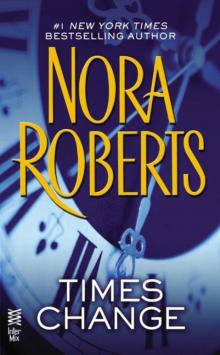 Times Change
Times Change Dance to the Piper: The O'Hurleys
Dance to the Piper: The O'Hurleys Christmas In the Snow: Taming Natasha / Considering Kate
Christmas In the Snow: Taming Natasha / Considering Kate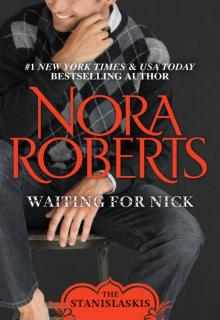 Waiting for Nick
Waiting for Nick Summer Desserts
Summer Desserts Dream 2 - Holding the Dream
Dream 2 - Holding the Dream The Novels of Nora Roberts, Volume 2
The Novels of Nora Roberts, Volume 2 In the Garden Trilogy
In the Garden Trilogy Eight Classic Nora Roberts Romantic Suspense Novels
Eight Classic Nora Roberts Romantic Suspense Novels Best Laid Plans jh-2
Best Laid Plans jh-2 From the Heart
From the Heart Holiday Wishes
Holiday Wishes Dream 1 - Daring to Dream
Dream 1 - Daring to Dream Second Nature
Second Nature Summer Pleasures
Summer Pleasures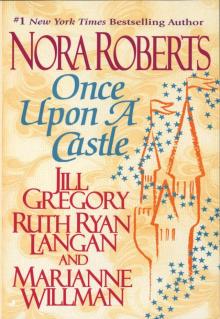 Once Upon a Castle
Once Upon a Castle Stars of Mithra Box Set: Captive StarHidden StarSecret Star
Stars of Mithra Box Set: Captive StarHidden StarSecret Star Impulse
Impulse The Irish Trilogy by Nora Roberts
The Irish Trilogy by Nora Roberts The Pride Of Jared Mackade tmb-2
The Pride Of Jared Mackade tmb-2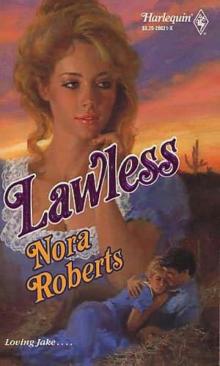 Lawless jh-3
Lawless jh-3 Taming Natasha
Taming Natasha Endless Summer
Endless Summer Bride Quartet Collection
Bride Quartet Collection Happy Ever After tbq-4
Happy Ever After tbq-4 Heart Of The Sea goa-3
Heart Of The Sea goa-3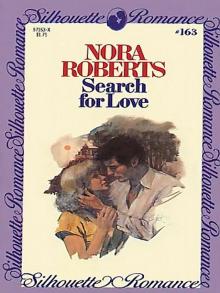 Search for Love
Search for Love Once upon a Dream
Once upon a Dream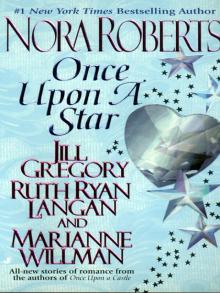 Once Upon a Star
Once Upon a Star Dream Trilogy
Dream Trilogy Risky Business
Risky Business The Novels of Nora Roberts, Volume 3
The Novels of Nora Roberts, Volume 3 Dream 3 - Finding the Dream
Dream 3 - Finding the Dream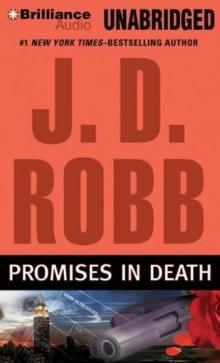 Promises in Death id-34
Promises in Death id-34 The Novels of Nora Roberts, Volume 4
The Novels of Nora Roberts, Volume 4 The Perfect Hope ib-3
The Perfect Hope ib-3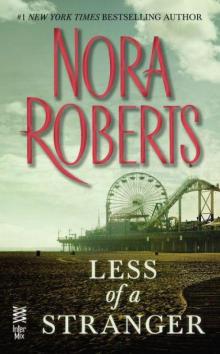 Less than a Stranger
Less than a Stranger Savour the Moment: Now the Big Day Has Finally Arrived, It's Time To...
Savour the Moment: Now the Big Day Has Finally Arrived, It's Time To... Convincing Alex
Convincing Alex Bed of Roses tbq-2
Bed of Roses tbq-2 Savour the Moment tbq-3
Savour the Moment tbq-3 Lessons Learned
Lessons Learned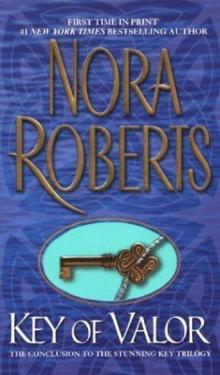 Key Of Valor k-3
Key Of Valor k-3 Red lily gt-3
Red lily gt-3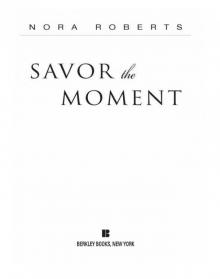 Savor the Moment
Savor the Moment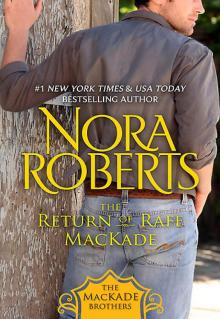 The Return Of Rafe Mackade tmb-1
The Return Of Rafe Mackade tmb-1 For The Love Of Lilah tcw-3
For The Love Of Lilah tcw-3 Black Rose gt-2
Black Rose gt-2 Novels: The Law is a Lady
Novels: The Law is a Lady Chesapeake Bay Saga 1-4
Chesapeake Bay Saga 1-4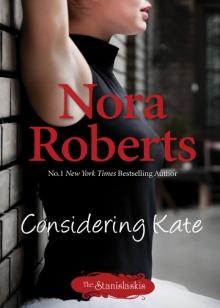 Considering Kate
Considering Kate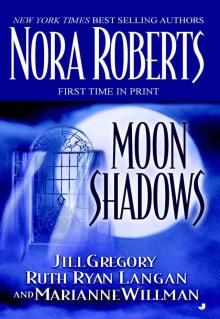 Moon Shadows
Moon Shadows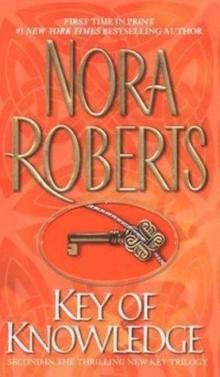 Key of Knowledge k-2
Key of Knowledge k-2 The Sign of Seven Trilogy
The Sign of Seven Trilogy Once Upon a Kiss
Once Upon a Kiss The Novels of Nora Roberts, Volume 5
The Novels of Nora Roberts, Volume 5 Suzanna's Surrender tcw-4
Suzanna's Surrender tcw-4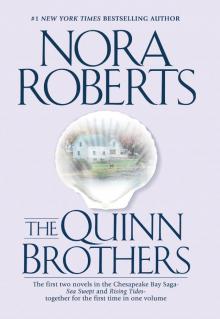 The Quinn Brothers
The Quinn Brothers Falling for Rachel
Falling for Rachel Brazen Virtue
Brazen Virtue Time Was
Time Was The Gallaghers of Ardmore Trilogy
The Gallaghers of Ardmore Trilogy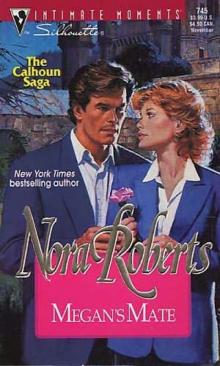 Megan's Mate tcw-5
Megan's Mate tcw-5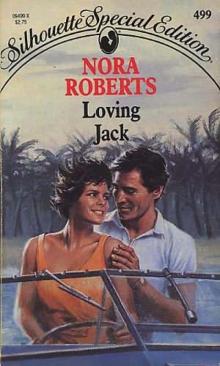 Loving Jack jh-1
Loving Jack jh-1 Rebellion & In From The Cold
Rebellion & In From The Cold Blue Dahlia gt-1
Blue Dahlia gt-1 The MacGregor Grooms
The MacGregor Grooms The Next Always tibt-1
The Next Always tibt-1 The Heart Of Devin Mackade tmb-3
The Heart Of Devin Mackade tmb-3 The Novels of Nora Roberts Volume 1
The Novels of Nora Roberts Volume 1 Treasures Lost, Treasures Found
Treasures Lost, Treasures Found Nora Roberts's Circle Trilogy
Nora Roberts's Circle Trilogy The Key Trilogy
The Key Trilogy The Fall Of Shane Mackade tmb-4
The Fall Of Shane Mackade tmb-4 A Will And A Way
A Will And A Way Jewels of the Sun goa-1
Jewels of the Sun goa-1 Luring a Lady
Luring a Lady